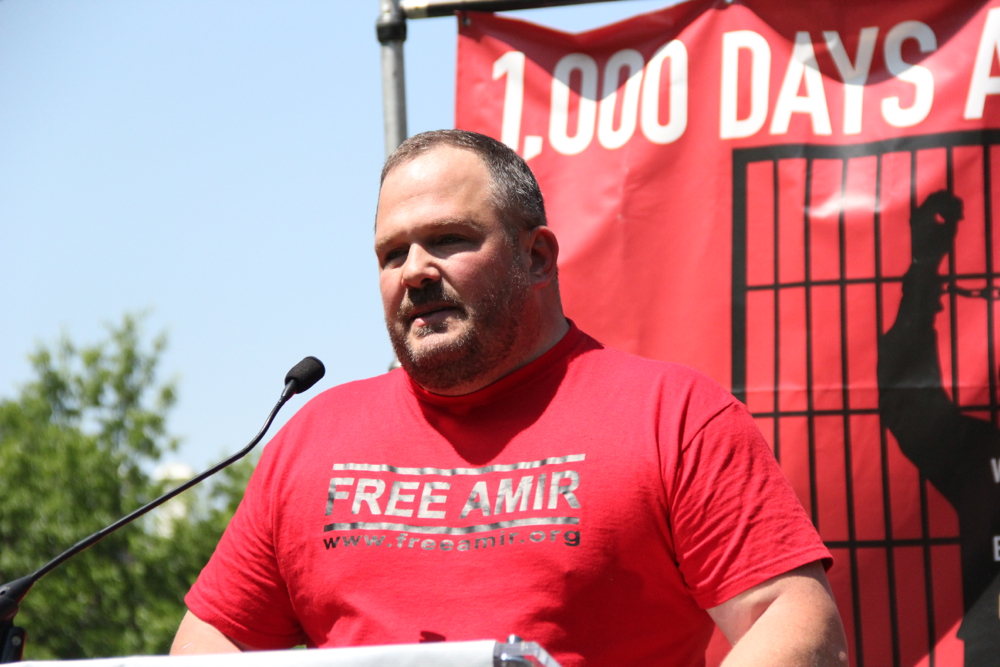WASHINGTON — A veteran Marine stood vigil in Lafayette Square near the White House for more than 16 hours Monday to bring attention to the plight of veteran Sgt. Amir Hekmati, who has been imprisoned in Iran for nearly 1,000 days.
Former Sgt. Terry Mahoney has never met Hekmati, and until Monday had never met his family. Still he considers the Michigan native a member of his Marine Corps family.
“This is a vigil of hope,” said Mahoney, dressed in a red T-shirt emblazoned with the phrase “Free Amir’ on it and a red Marine Corps cap, as he spoke from a stage in the park. “Even though Memorial Day is his 1,000th day, that’s for fallen soldiers. We know we’re going to get him back.”
Mahoney’s vigil in “a figurative cell” in the park lasted 1,000 minutes, one minute for each day of Hekmati’s imprisonment.
Hekmati, who was first reported missing in Iran on Aug. 29, 2011, during a visit to relatives in Tehran, served from 2001 to 2005 and acted as an Arabic and Persian linguist during Operation Iraqi Freedom in 2003 and 2004.
For the past 16 months, the Iranian American sat in solitary confinement in Iran’s Evin prison in northwestern Tehran on charges of espionage, serving out a 10-year prison sentence. The State Department denies he was acting as a U.S. spy.
Iranian officials sentenced him to death in absentia during a secret trial in January 2012, but Iran’s Supreme Court overturned the verdict three months later due to a lack of evidence.
The Obama administration, the State Department and Rep. Dan Kildee, R-Mich., have all advocated for his release. The family has all received support from Michigan Sens. Debbie Stabenow and Caril Levin. Kildee said he and other members of Congress are paying attention to the message the Iranian government is sending with Hekmati’s imprisonment.
“If Iran intends sincerely to rejoin the international community, it will take a big step forward in doing so by releasing Amir Hekmati,” Kildee said. “[Members of Congress] would see that as tangible evidence that their interest in rejoining the community is not just rhetoric, but is reality.”
As the U.S. and five other countries within the UN Security Council engage with Iran in negotiations for a comprehensive nuclear program, the talks have provided the U.S. an opportunity to discuss Amir’s case with Iranian officials, Kildee said.
Although Hekmati was not active duty at the time of his arrest, his sister, Sarah Hekmati, said he had taken precautionary measures, such as notifying the Iranian interests section within the Pakistani Embassy about his Marine service to avoid issues with his visa application.
But Iranian intelligence officials still considered Hekmati’s military service suspect, Sarah said, and that led to his arrest.
“On the day that he left, we never expected to not know when we would see him again,” she said.
Hekmati’s parents emigrated from Iran to the U.S. in 1979. In September 2012, Amir’s father was diagnosed with brain cancer and recently suffered a stroke, which has caused additional strain on the family, Sarah said.


